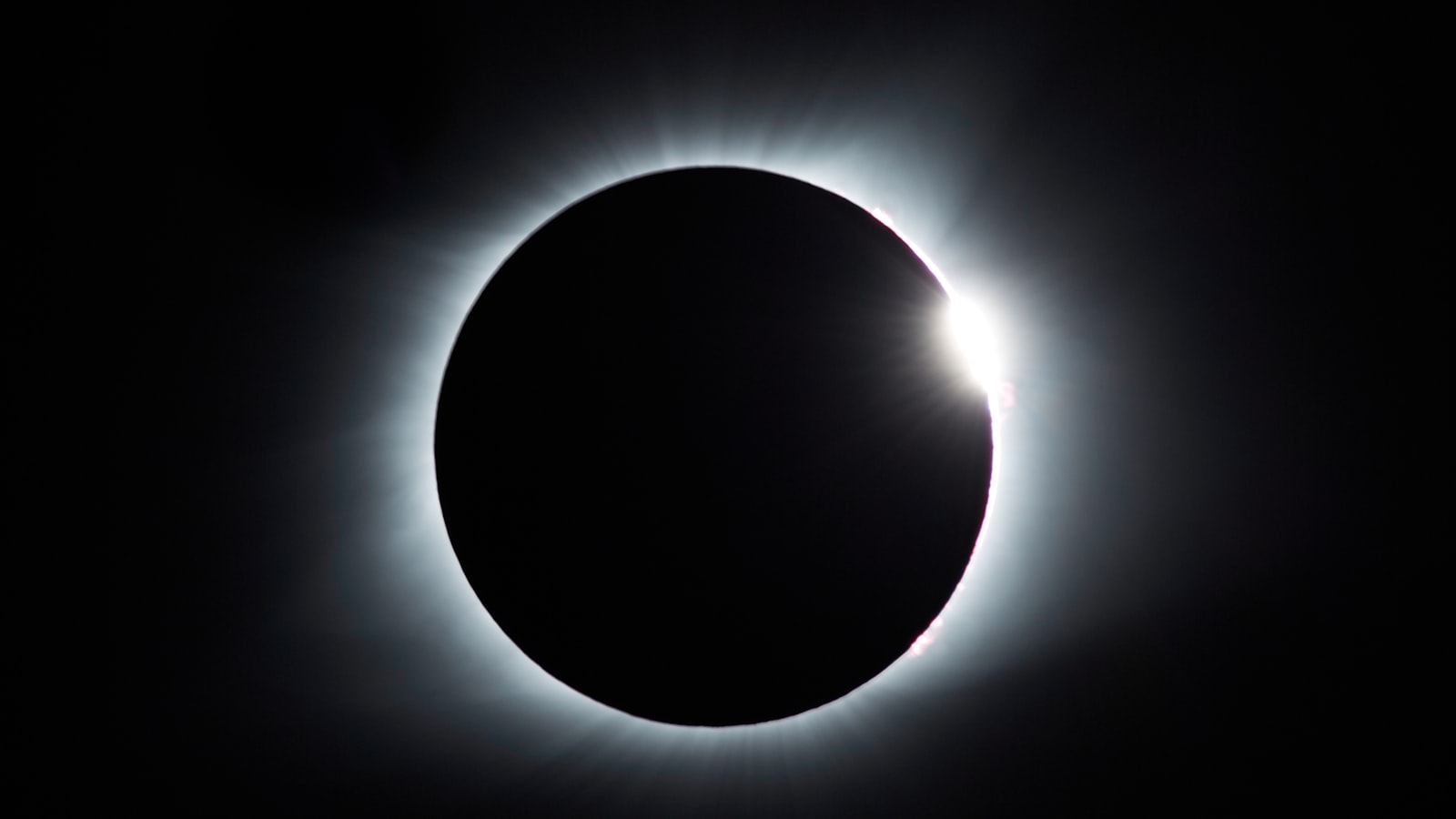
Imagine standing under the open sky, as day suddenly turns into night, stars shimmering in full splendor as a surreal darkness blankets the earth in the middle of the day - a momentary hiatus in daylight, known as a total solar eclipse. In the tapestry of celestial events, few spectacles carry the awe and excitement of a solar eclipse. As we approach the year 2024, North America gears up for what astronomers and sky-watchers affectionately call 'The Great Solar Eclipse' set for April 8, 2024. This marvel hasn't graced this region with its totality since the widely celebrated 'Great American Eclipse' of 2017, generating eager anticipation from eclipse chasers.
What Is a Solar Eclipse, and Why Should You Care?
A solar eclipse happens when the moon passes directly between the earth and the sun, obscuring the sun from view. When the alignment is just perfect, those within the narrow path of totality are treated to a mesmerizing display as the moon fully covers the sun for a brief and beautiful moment. Why should you be excited about this astral event? Beyond its rarity and beauty, a solar eclipse offers an unparalleled celestial spectacle. It's a reminder of our place in the vastness of space, a perfect opportunity for scientific observation and an experience that unites people in wonder.
Preparing for Totality: What You Need to Know
Chief among preparations is securing the proper viewing equipment. Visiting websites like Absolute Eclipse can set you up with the proper ISO 12312-2:2015(E) compliant glasses, endorsed by the American Astronomical Society's Solar Eclipse Task Force. Remember, safety first—never gaze at the sun without proper protection!
The Path of Totality
The April 8, 2024, total solar eclipse touts a path of totality stretching diagonally across North America, from Mexico up to the northeastern regions of Canada. Unlike annular or partial eclipses, total eclipses, where the sun is entirely covered by the moon, afford a rare glimpse at the sun's elusive corona. Now, let's take a deeper look at where you'll want to be when this astral dance unfolds.
Mexico: The Starting Point
The eclipse begins its terrestrial journey on Mexico's idyllic Pacific coast around 11:07 a.m. PDT. Key areas like Sinaloa, Durango, and Coahuila will be plunged into darkness as they lie on the path of totality, affording residents and visitors alike a prime view.

United States: A Coast-to-Coast Phenomenon
As the shadow moves northwards, the United States will experience the eclipse from Texas all the way to Maine, delighting spectators in states like Arkansas, Missouri, Illinois, Ohio, and New York. Be sure to mark this in your calendars!

Canada: The Grand Finale
This cosmic spectacle concludes its majestic display in Canada, crossing regions like Southern Ontario, Quebec, New Brunswick, Prince Edward Island, and through Newfoundland.

Getting the Timing Right
For the exact timing at specific locations, tools like the Eclipse Timer eclipse-timer.com can be invaluable. It provides precise times and dates for solar eclipses in your area, ensuring you don't miss a second of this cosmic event.
The Science and Splendor of an Eclipse
Eclipses aren't just visually striking; they're informative scientific events. Solar eclipses have historically enabled significant discoveries, including validation of Einstein's theory of general relativity. They offer a unique window for astronomers to study the sun's atmosphere and can catalyze public interest in science.
Community and Culture Around Eclipses
Total solar eclipses have the power to bring communities together. Cities along the path of totality often host festivals and viewing parties, turning this natural phenomenon into a full-fledged cultural event. Beyond the camaraderie, many cultures attribute profound significance to eclipses, seeing them as moments to reflect on life and the cosmos.
Tips for the Perfect Eclipse Experience
For a perfect eclipse-viewing experience, plan your destination well in advance. Consider factors like historical weather patterns for clear skies and find a spot with an unobstructed horizon. Pack your eclipse glasses, and if you're a photography enthusiast, don't forget your solar filters for camera equipment.
Learning and Engagement: Becoming an Eclipse Expert
This eclipse presents a fantastic opportunity for learners of all ages. Dive into resources, attend talks, or participate in workshops to understand the mechanics and historical context of this astronomical event. Engage with astronomy clubs and online communities to share insights and excitement.
The Countdown Begins
As the 2024 Great Solar Eclipse draws nearer, anticipation builds. For those preparing to indulge in this celestial show, it's crucial to plan ahead. Secure your viewing spot and eclipse glasses, and prepare for an experience that promises to be both humbling and unforgettable.
Resources and Further Reading
For more detailed information, strategies on eclipse photography, or the science behind the phenomenon, visit authoritative sources like NASA's Eclipse Page. Remember, the excitement is just beginning, and the countdown to April 8, 2024, is ticking away. Join astronomers, hobbyists, and first-time observers in witnessing the majestic dance of the sun and the moon.

In the time leading up to the eclipse, don't forget to practice safe sun-gazing habits, and consider investing in specialized solar viewing glasses from retailers like Absolute Eclipse. Prepare to be spellbound by the astronomical event of a decade, as we witness together the great curtain of the cosmos pull back to reveal the Great Solar Eclipse of 2024.
The Great Solar Eclipse of 2024 promises to be an awe-inspiring event that showcases the beauty and scale of our cosmic surroundings. As we all eagerly prepare for this incredible phenomenon, may your anticipation be as boundless as the night sky, and your experience be as unforgettable as the eclipse itself.
Now, gear up, mark your calendars, and prepare for a day under the stars—in the middle of the day. 🌒✨
Happy Eclipse Watching!




















